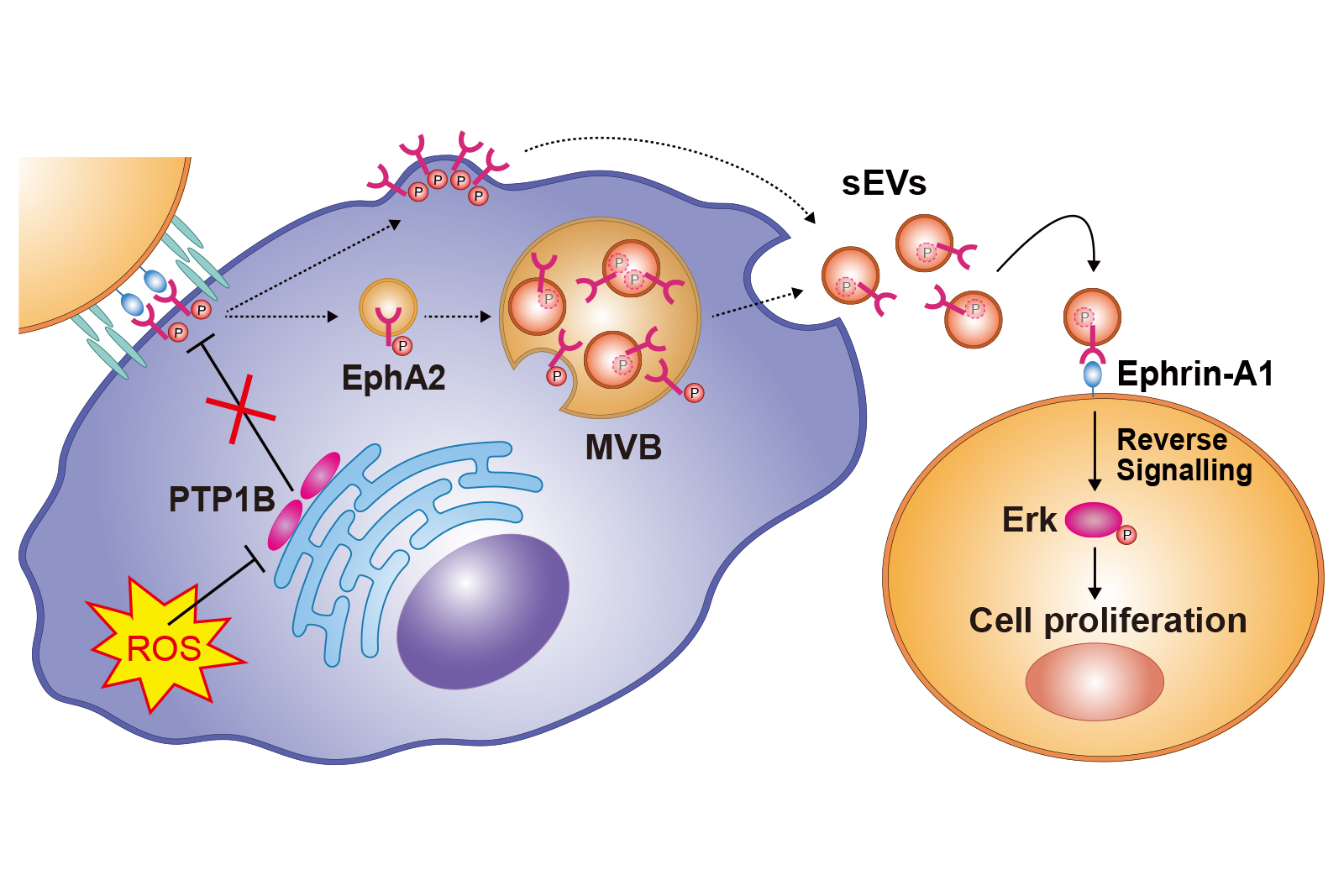Small extracellular vesicles secreted from senescent cells promote cancer cell proliferation through EphA2 (Hara Lab, in Nature Commun)
Cellular senescence, a state of irreversible cell cycle arrest, prevents the proliferation of cells at risk for neoplastic transformation. On the other hand, the altered secretome of senescent cells has various effects on tissue homeostasis and can also promote the growth of the surrounding cancer cells, thus providing a potential link between age-associated increase in senescent cells and cancer incidence. However, although extracellular vesicles (EVs) have emerged as new players in intercellular communication, how senescence affects their function remains largely unexplored. Here, we show that exosome-like small EVs (sEVs) are important mediators of the pro-tumorigenic function of senescent cells. EphA2 expressed on the surface of senescent cell sEVs bind to ephrin-A1 that is highly expressed in several types of cancer cells and promotes cell proliferation by activating the Erk pathway through EphA2/ephrin-A1 reverse signalling. Exosomal sorting of EphA2 is enhanced in senescent cells due to its increased phosphorylation resulting from oxidative inactivation of PTP1B phosphatase. Our results demonstrate a novel mechanism of reactive oxygen species (ROS)-regulated sEV cargo sorting, which is critical for the potentially deleterious growth-promoting effect of the senescent cell secretome.
(Fig.)
Schematic model of the regulation and function of sEV-associated EphA2 in senescent cells.
This article is published in Nature Communications on June 6.
Small extracellular vesicles secreted from senescent cells promote cancer cell proliferation through EphA2
Nat Commun. doi: 10.1038/NCOMMS15728
Links
- Home
- Achievement
- Research Activities
- Small extracellular vesicles secreted from senescent cells promote cancer cell proliferation through EphA2 (Hara Lab, in Nature Commun)








